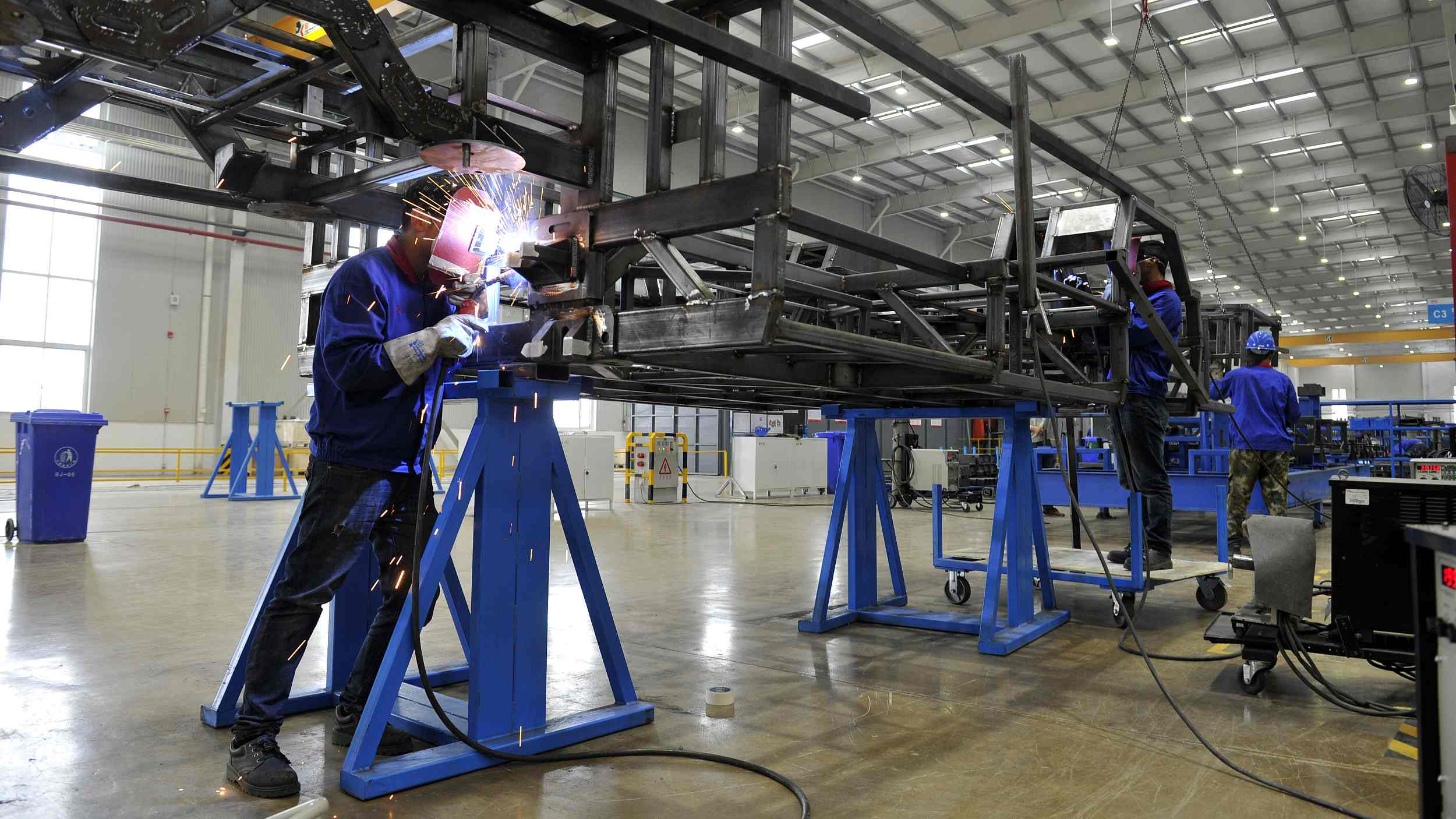
Business
13:05, 20-Sep-2018
60 years on: NW China's Ningxia embraces industrial upgrading
Updated
12:35, 23-Sep-2018
CGTN

This year marks the 60th anniversary of the establishment of northwest China's Ningxia Hui Autonomous Region. Continuous optimization of the industrial structure, transformation, and upgrading of traditional industries in the region have become a new normal.
For example, at least 35 people are needed in a standard plant to complete the sand molded castings of 12 sets of 3D printing equipment, but in a smart factory, the process needs merely seven. Even with no heavy work and zero emissions, the production efficiency is more than five times that of the traditional casting on the same scale.
Besides, Ningxia has also stood out in terms of its specialty industries in recent years.
Winemaking on fast-track
Wines produced in the east of the Helan Mountains is a case in point.
The wine industry has already been a calling card for Ningxia, with 570,000 mu (38,000 hectares) of vineyards, 86 wineries and an annual output of nearly 100,000 tons. Ningxia stands as China's major wine producing area.
On top of the annual economic output of over 20 billion yuan (2.91 billion US dollars), the grape industry can in the meantime create no less than 120,000 jobs for ecological immigrants every year.
Booming tourism
The tourism industry in this area has been on a fast-track and has emerged as one of the strategic pillar industries partly due to the rise of red tourism. Every year, many tourists flock to this southwest town to recall their heroes.
Visiting assorted wineries, getting a picture of the winemaking process, and purchasing favorite wines have also become Ningxia's unique tourism resource.
Building on ecological protection, the Shahu scenic area in Ningxia has also continuously boosted its appeal by offering a broad array of water entertainment programs while giving rise to desert tourism.
For now, both the number of tourists and the income from reception are surging at double-digit rates per year, official data showed.
Full-fledged transportation
On January 15, 2016, Ningxia opened its first international freight train. Over the past two years, a total of 110 international freight trains or 4,651 carriages went from Ningxia to Central Asia and West Asia, with an export volume of 193,000 tons. More and more Ningxia enterprises have gone abroad to find business opportunities, and merchants from countries in Central Asia, West Asia, and other areas are constantly visiting the northwest Chinese region.
In 2007, the Yinchuan Airport was opened, ending the era of no open ports after 50 years, post the establishment of Ningxia Hui Autonomous Region, and thereafter Ningxia was committed to building an "Air Silk Road," which had opened direct international cargo charter flights to Kazakhstan and direct flights to Dubai.
The construction of the transportation channel has driven the rapid development of Ningxia's foreign trade. According to the local Department of Commerce, the total foreign trade volume in Ningxia in 2017 was around 715 times higher than in 1958 and 170 times its size in 1978 with an annual growth rate of 11.8 percent.
Win-win cooperation
In addition, Ningxia took the initiative to build trade ports and overseas industrial parks, widening room for capacity cooperation with the Belt and Road countries.
Over the past three decades, several multinational companies have been considering Ningxia as their investment destination. From 2012 to 2017, Ningxia approved the establishment of 144 foreign-invested enterprises, with the actual use of foreign capital exceeding the total sum of the previous 30 years.

SITEMAP
Copyright © 2018 CGTN. Beijing ICP prepared NO.16065310-3
Copyright © 2018 CGTN. Beijing ICP prepared NO.16065310-3